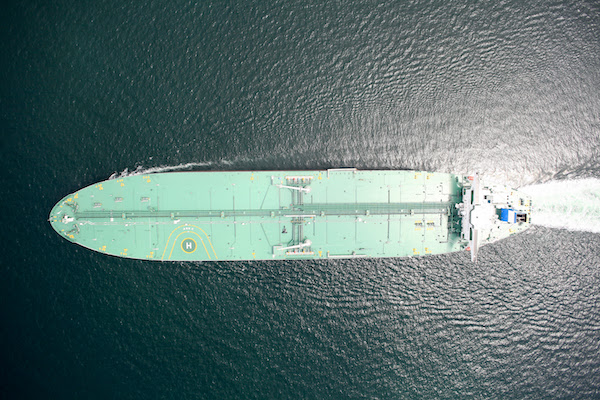Sources from at least two major oil tanker companies said Jan. 24 that their fleets have yet to resume transits through the Red Sea, as they await greenlights from insurers.
“We will check with the insurance companies to determine whether their coverage will be valid when the ships move through the Suez Canal,” one of the sources said, adding that the insurance premium for transiting through the canal should not be significantly higher compared with when the voyage is via the Cape of Good Hope.
Meanwhile, another source said their company is “not making Red Sea transits at the moment.” According to insurance brokers, cargo insurance premiums have remained unchanged since the recent Israel-Hamas ceasefire agreement.
The Red Sea is still categorized as a high-risk area, or HRA, by the Lloyd’s Joint War Committee, which provides guidelines to maritime insurance companies. However, setting actual premium values is the prerogative of the companies themselves and subject to negotiations with their shipping counterparts.
Nevertheless, tanker freight rates are declining. The Platts-assessed Persian Gulf-UK-Continent LR2 route, which was assessed at $4.225 million via the Suez Canal on Jan. 17 before the weekend announcement by the Houthi rebels halting attacks on most ships, has since dropped 10%, S&P Global Commodity Insights data showed.
Most brokers projected a further decline in freights in the near term and cited the reported release of the crew of the Galaxy Leader as a positive step in restoring confidence in the maritime industry.
Galaxy Leader
A spokesperson for Japan’s NYK Line, the charterer of the Galaxy Leader, said Jan. 24 that the company has confirmed the release of all 25 crew members of the car carrier with the ship owner, UK-based Galaxy Maritime, following its seizure in November 2023.
NYK — one of the world’s largest ship operators — is still carefully assessing the safety situation in the surrounding waters before resuming navigation in the Red Sea, the spokesperson added.
Separately, a spokesperson for the Humanitarian Operations Coordination Center, which represents the Houthi fighters, also confirmed with Commodity Insights the release of the Galaxy Leader crew.
“Yesterday [Jan. 22], the crew of the Galaxy Leader vessel, consisting of 25 individuals of various nationalities, was released in coordination with the Islamic Resistance Movement (Hamas) and through the mediation of the Sultanate of Oman,” the HOCC spokesperson said.
“They were transported from Sana’a to Muscat aboard a Royal Air Force of Oman aircraft in preparation for their return to their respective countries,” the spokesperson said, adding that there was no update on the “status” of the Galaxy Leader itself.
The Houthi rebels seized the Galaxy Leader near Hodeidah, Yemen, on Nov. 19, 2023.
With the commencement of the Israel-Hamas ceasefire deal Jan. 19, the Iran-backed Houthi fighters pledged to cease attacking ships passing through the Red Sea, except for those flagged in Israel or wholly owned by Israeli companies or individuals.
Oil transits via the Bab al-Mandab Strait at the southern end of the Red Sea fell to 2.5 million b/d in 2024 from 6.9 million b/d in 2023, while those via the Suez Canal, which connects the Red Sea and the Mediterranean, dropped to 3.9 million b/d from 7.9 million b/d, according to S&P Global Commodities and Sea(opens in a new tab).
LNG ship transit via the Red Sea and through the Suez Canal has been halted for more than a year due to increased attacks on merchant ships.
Source: Platts





